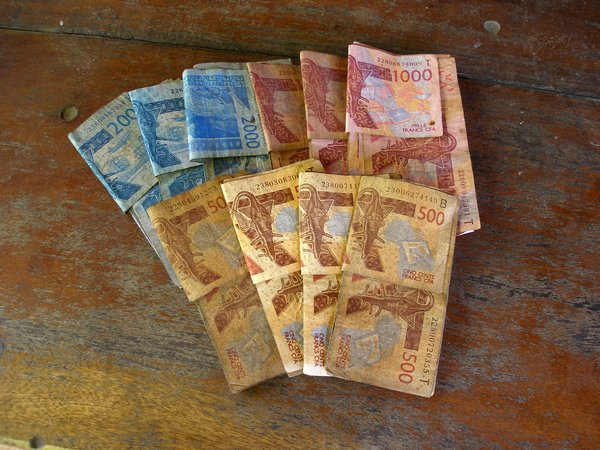2) Change problem
There’s no change …
We’ve all heard this phrase, synonymous with waiting for change, with your large or even small note in your hand.
Well, there’s a solution, albeit a paying one, but one that allows you to avoid this kind of inconvenience.
This solution is the moneychangers, not to be confused with the currency changers who operate in the street near the main market and the BIA bank – it’s not the same business.
The moneychanger – who may be a lady – you’ll find in more or less every place where there’s business – markets, entrances to large car parks for example.
He’s there to meet the need for the small notes that are so common here.
His commission is 1%, which means that if you want to exchange your 10,000 note into small notes, 2,000, 1,000 or 500, you’ll add a commission of 100 CFA francs.
You can mix and match tickets if you wish, subject to availability.
For obvious security reasons, they don’t work at night.
I use them all the time, and there’s no more hassle and waiting every time you buy something small.
For example, if I have to go to Kpalimé for the weekend, I’ll make 50,000 in change beforehand, and from there, no more worries, as it’s always possible to adjust your payment to the amount requested.
What about tokens and coins?
There are two solutions for that: hook up with a slot machine operator who collects piles of coins and tries to convert them into banknotes, or go to your favourite bank and ask for rolls.
You can also find bundles of small notes at the bank – and that’s what money changers do – but they’re used to it and have their own circuit, while you risk spending a certain amount of time there.
On the other hand, don’t expect me to tell you where I can find my money-changer, who will solve my problem. It’s up to you to find your own, not far from where you live or in a place where you go regularly – there’s usually one at the roundabout in the port.



